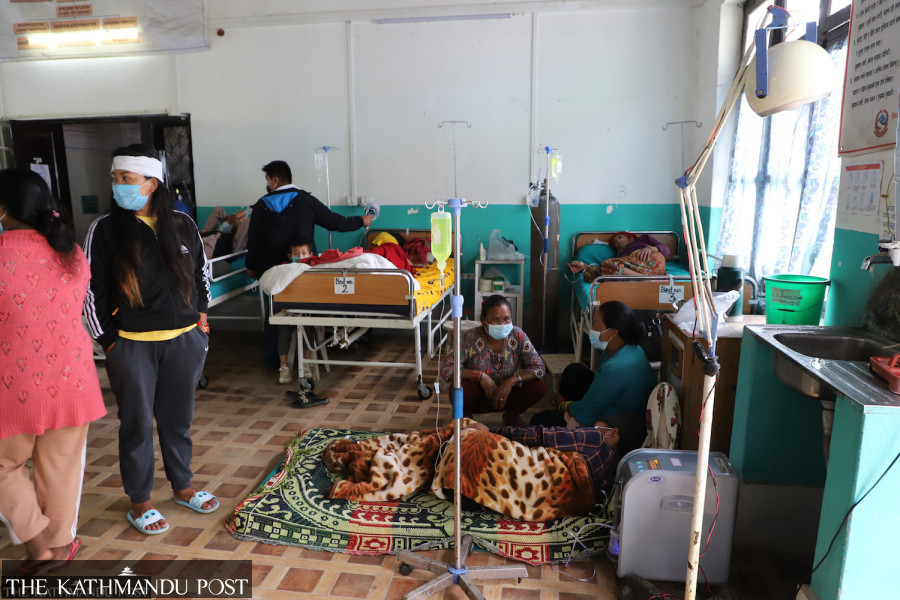Editorial
More promises
The health minister should focus on ongoing programmes rather than on unrealistic new plans.
Since taking office around three months ago, Health Minister Pradip Paudel has announced several initiatives focused on free healthcare programmes. Although these announcements appear laudable at the outset, those acquainted with our healthcare system suspect they will do more harm than good. Such a spree of free healthcare programmes is impractical in a nation where funding for even basic health facilities is scarce. Isn’t the availability of facilities a prerequisite for making them “free” to the public?
Last week, Minister Paudel announced three free programmes, including free treatment for cancer patients under 14. A week before that, Paudel had pledged free care for burn victims who cannot afford treatment. But how will these be executed as hospitals lack vital resources? Every year, around 1,500 children under 14 have cancer. Many have no option but to travel abroad for treatment due to a lack of positron emission tomography (PET) scans, immunohistochemistry, bone marrow transplants and other important tests. Moreover, there is a severe shortage of support staff in health facilities. On burn care, most health facilities only provide basic treatments, compromising patient safety even as, according to the ministry, around 57,000 people are affected by it every year.
Without proper budget allocation, such ambitious programmes are bound to fail. In the budget for the current fiscal year, the health sector received Rs86.24 billion, which was only a 2.5 percent increase from the previous fiscal year. With only 4.6 percent of the total budget dedicated to healthcare, experts warned about its long-term impacts, potentially affecting crucial milestones achieved over the years. Several healthcare programmes, including those related to safe motherhood, child health, nutrition, and mental health, were already impeded by the cut in the previous year’s budget. What’s more, the agencies under the ministry don’t even have the funds to provide something as basic as mental health screening training to children and adolescents. While the health minister unveils one free programme after another, the agencies under the ministry seek funds from aid agencies to carry them forward.
At a press conference 100 days after assuming office, Paudel claimed that federal hospitals are now better organised and he would now focus on health insurance reform. However, his promise to do away with long waiting lines at state hospitals within a month and raise the coverage of the government’s health insurance scheme to Rs500,000 have yet to be realised. Such long queues reflect the poor healthcare accessibility, with facilities mostly Kathmandu-centric. Over the years, patient numbers have increased exponentially, even while there has been no rise in human resources in state-run hospitals in the past three decades. All of these reflect how misguided and superficial these health-related commitments are. In yet another example of incompetence, the health ministry released a circular in September to operate outpatient services on public holidays. How is this sustainable in a system where doctors are already overworked and offered no extra incentives?
Perhaps the health minister should focus more on using available funds to push the current healthcare programmes than on starting more ambitious initiatives. Nepalis have had their fill of populist vows that disregard their well-being, especially in an area as basic as healthcare. Government representatives would do well not to make lofty promises that adds burden on our already overworked healthcare providers.




 13.12°C Kathmandu
13.12°C Kathmandu














